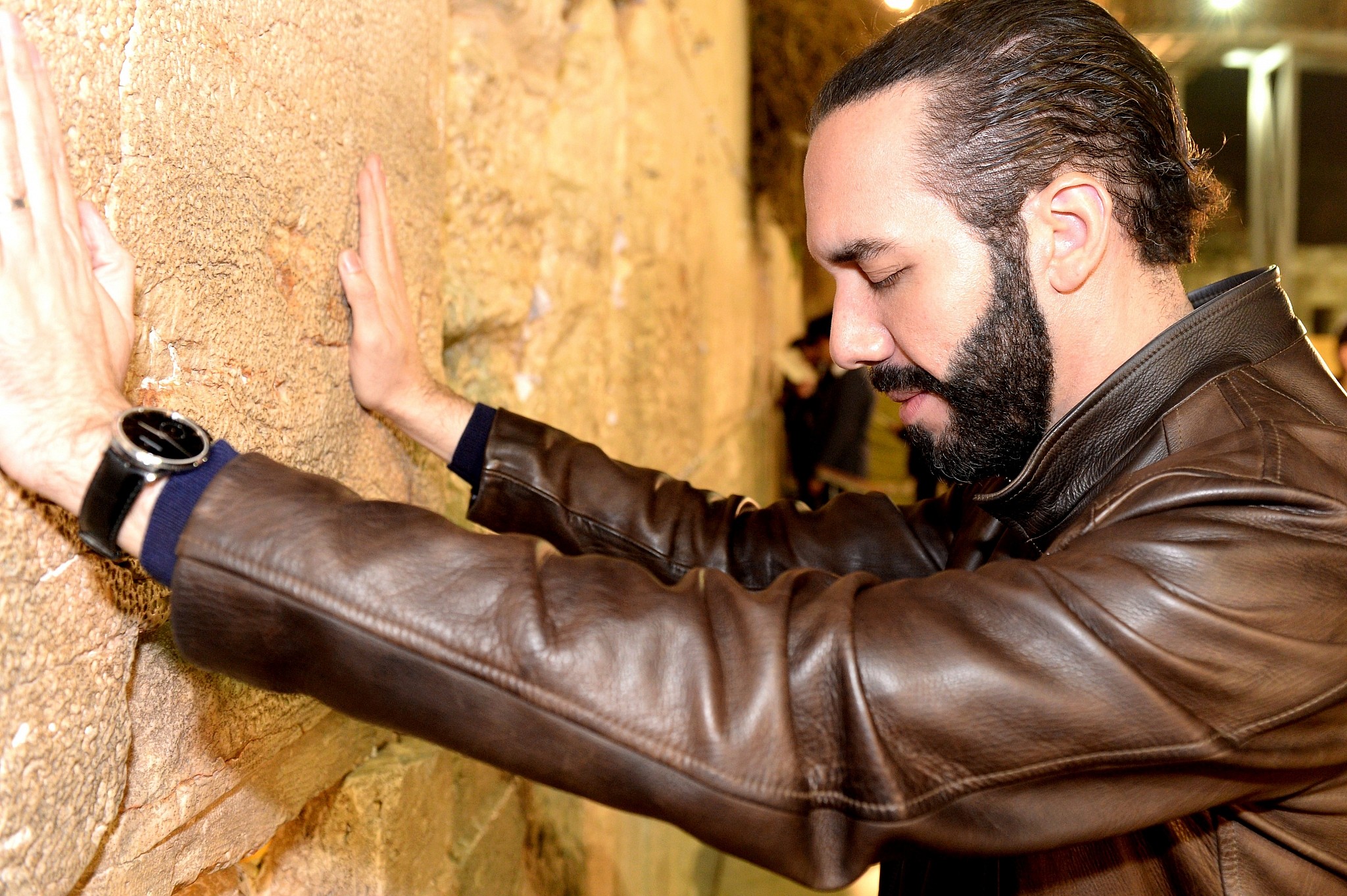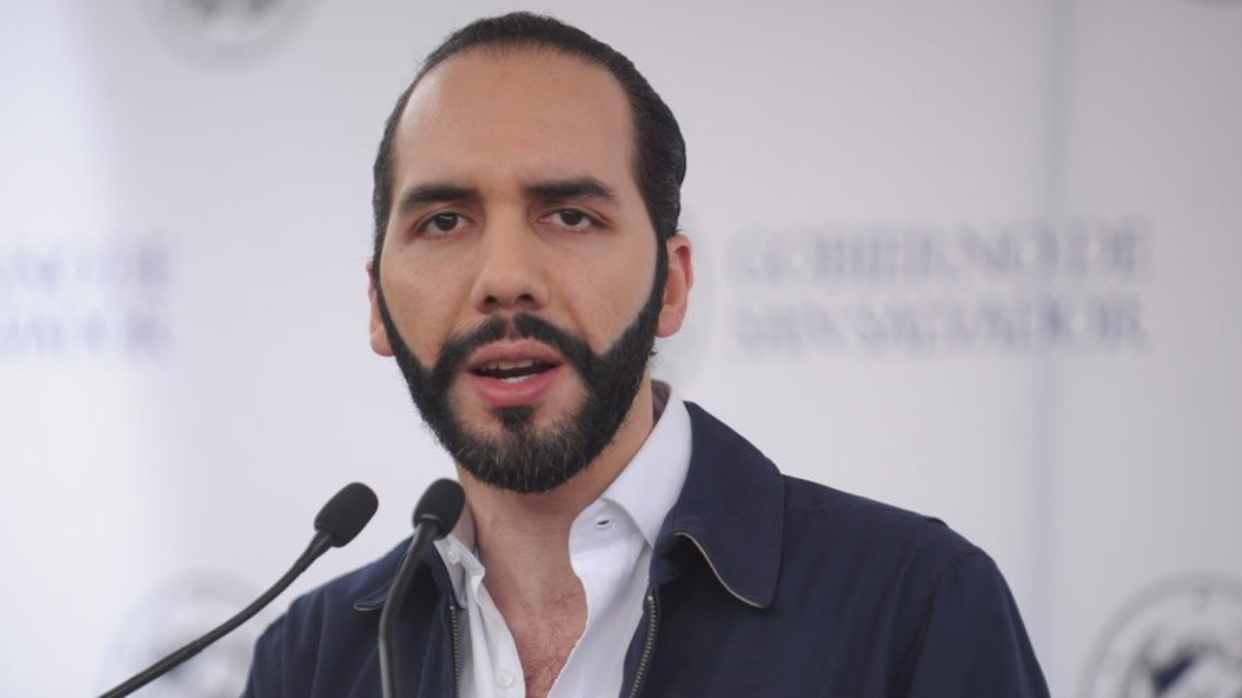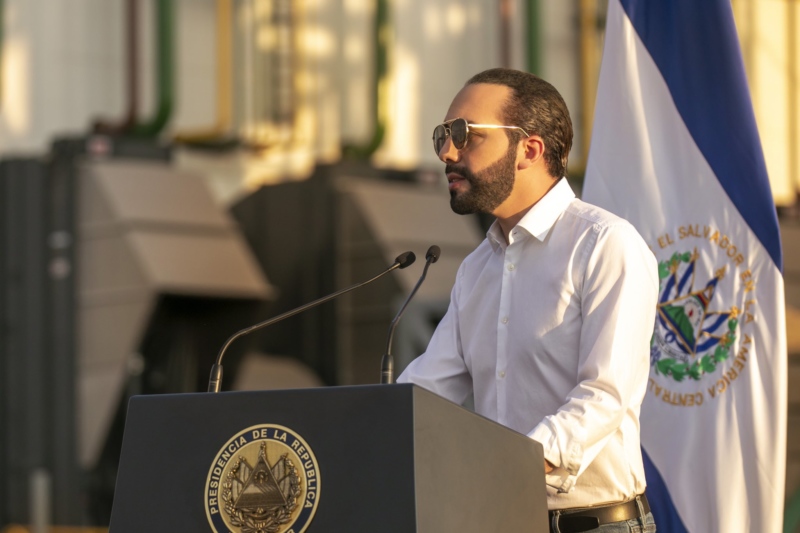The Unwavering Faith Of Nayib Bukele: Exploring The Religious Beliefs Of El Salvador's President
Nayib Bukele's religious beliefs
Nayib Bukele, the current President of El Salvador, is a Roman Catholic. He has spoken openly about his faith on several occasions, and he has said that it is an important part of his life. In a 2019 interview with the Catholic News Agency, Bukele said, "My faith is very important to me. It's what gives me strength and guidance in my life."
Bukele's religious beliefs have influenced his policies as president. For example, he has been a vocal supporter of the Catholic Church's teachings on marriage and family. He has also spoken out against abortion and euthanasia. Bukele's religious beliefs are likely to continue to influence his policies as president.
Nayib Bukele's Religion
Nayib Bukele, the current President of El Salvador, is a Roman Catholic. His religious beliefs have influenced his policies as president. Here are seven key aspects of Nayib Bukele's religion:
- Roman Catholic: Bukele is a member of the Roman Catholic Church, the largest Christian denomination in the world.
- Faith: Bukele has said that his faith is very important to him and that it gives him strength and guidance in his life.
- Policies: Bukele's religious beliefs have influenced his policies as president. For example, he has been a vocal supporter of the Catholic Church's teachings on marriage and family.
- Abortion: Bukele has spoken out against abortion, which is illegal in El Salvador except in cases where the mother's life is in danger.
- Euthanasia: Bukele has also spoken out against euthanasia, which is also illegal in El Salvador.
- Social justice: Bukele has said that his faith calls him to work for social justice and to help the poor and marginalized.
- Family: Bukele is married and has three children. He has said that family is very important to him.
Bukele's religious beliefs are likely to continue to influence his policies as president. He is a devout Catholic who believes that his faith calls him to serve others and to work for the common good.
| Name: | Nayib Bukele |
| Birth date: | July 24, 1981 |
| Birth place: | San Salvador, El Salvador |
| Occupation: | President of El Salvador |
| Political party: | New Ideas |
| Religion: | Roman Catholic |
Roman Catholic
Nayib Bukele's Roman Catholic faith is a significant aspect of his personal and political life. As a member of the world's largest Christian denomination, Bukele's religious beliefs and values influence his decision-making and policies as President of El Salvador.
The Roman Catholic Church teaches a comprehensive set of doctrines and moral principles that guide its members' lives. These teachings include beliefs about God, Jesus Christ, the Holy Spirit, the Bible, and the sacraments. Catholics also believe in the importance of social justice and helping the poor and marginalized.
Bukele has said that his faith calls him to serve others and to work for the common good. This is reflected in his policies, which have focused on reducing poverty, improving education, and fighting corruption.
Bukele's religious beliefs are likely to continue to influence his policies as president. He is a devout Catholic who believes that his faith calls him to serve others and to work for the common good.
Faith
Nayib Bukele's faith is a central part of his life and has a significant impact on his role as President of El Salvador. Here are four key aspects of Bukele's faith and its connection to his political leadership:
- Personal strength and guidance: Bukele has said that his faith gives him strength and guidance in his life. This is evident in his speeches and public statements, in which he often refers to his faith as a source of inspiration and support.
- Social justice: Bukele's faith calls him to work for social justice and to help the poor and marginalized. This is reflected in his policies, which have focused on reducing poverty, improving education, and fighting corruption.
- Family values: Bukele is a strong supporter of traditional family values. He has said that he believes that the family is the foundation of society and that it should be protected and strengthened.
- Political decisions: Bukele's faith influences his political decisions. For example, he has spoken out against abortion and euthanasia, which are both against the teachings of the Catholic Church.
Overall, Bukele's faith is a significant part of his life and has a major impact on his role as President of El Salvador. His faith gives him strength and guidance, and it inspires him to work for social justice and to help the poor and marginalized.
Policies
Nayib Bukele's religious beliefs have had a significant impact on his policies as president. Here are four key areas where his faith has influenced his decision-making:
- Marriage and family: Bukele is a strong supporter of traditional family values. He has said that he believes that the family is the foundation of society and that it should be protected and strengthened. This is reflected in his policies, which have focused on supporting families and making it easier for them to succeed.
- Education: Bukele believes that education is essential for personal and social development. He has increased funding for education and has implemented reforms to improve the quality of education in El Salvador.
- Healthcare: Bukele believes that everyone deserves access to quality healthcare. He has increased funding for healthcare and has implemented reforms to make healthcare more affordable and accessible for all Salvadorans.
- Social justice: Bukele believes that it is important to fight poverty and inequality. He has implemented a number of social programs to help the poor and marginalized.
Overall, Bukele's religious beliefs have had a significant impact on his policies as president. He has used his faith to guide his decision-making and to create a more just and equitable society for all Salvadorans.
Abortion
Nayib Bukele's religious beliefs have had a significant impact on his stance on abortion. As a devout Roman Catholic, Bukele believes that life begins at conception and that abortion is therefore wrong. He has spoken out against abortion on several occasions and has said that he will not allow it to be legalized in El Salvador.
- Religious beliefs: Bukele's religious beliefs are the primary reason for his opposition to abortion. He believes that life begins at conception and that abortion is therefore wrong.
- Personal experiences: Bukele has also said that his personal experiences have influenced his stance on abortion. He has said that he has seen the pain and suffering that abortion can cause, and that this has made him even more opposed to it.
- Public opinion: Bukele's stance on abortion is in line with the views of the majority of Salvadorans. A 2019 poll found that 67% of Salvadorans believe that abortion should be illegal in all or most cases.
- Political considerations: Bukele's stance on abortion is also likely to be influenced by political considerations. He is aware that the majority of Salvadorans oppose abortion, and he does not want to alienate these voters.
Overall, Bukele's religious beliefs, personal experiences, and political considerations have all contributed to his strong opposition to abortion.
Euthanasia
Nayib Bukele's Roman Catholic faith is the primary reason for his opposition to euthanasia. The Catholic Church teaches that euthanasia is a grave sin, as it is the intentional killing of an innocent human life. Bukele has said that he believes that all life is sacred and that euthanasia is therefore wrong.
In addition to his religious beliefs, Bukele has also said that his personal experiences have influenced his stance on euthanasia. He has said that he has seen the pain and suffering that euthanasia can cause, and that this has made him even more opposed to it.
Bukele's stance on euthanasia is in line with the views of the majority of Salvadorans. A 2019 poll found that 69% of Salvadorans believe that euthanasia should be illegal in all or most cases.
Overall, Bukele's religious beliefs, personal experiences, and political considerations have all contributed to his strong opposition to euthanasia.
Social justice
Nayib Bukele's Roman Catholic faith is a major influence on his commitment to social justice. The Catholic Church teaches that all people are created in the image and likeness of God, and that we are therefore called to love and serve one another. This belief has led Bukele to focus on policies that help the poor and marginalized, such as increasing access to education and healthcare, and fighting corruption.
- Preferential option for the poor: The Catholic Church teaches that we should have a preferential option for the poor, meaning that we should prioritize the needs of the poor and marginalized in our society. Bukele has adopted this principle in his own life, and he has made it a central part of his presidency.
- Solidarity: The Catholic Church also teaches that we should be in solidarity with the poor and marginalized. This means that we should stand with them in their struggles and work to create a more just and equitable society. Bukele has shown his solidarity with the poor and marginalized through his policies and his actions.
- Social justice: The Catholic Church teaches that social justice is a fundamental part of the Gospel message. This means that we should work to create a society where everyone has the opportunity to live a full and dignified life. Bukele has made social justice a priority in his presidency, and he has implemented a number of policies to help the poor and marginalized.
- Common good: The Catholic Church teaches that we should work for the common good, which means the good of all people in society. Bukele believes that the best way to achieve the common good is to focus on the needs of the poor and marginalized.
Bukele's commitment to social justice is a reflection of his Catholic faith. He believes that all people are created in the image and likeness of God, and that we are therefore called to love and serve one another. This belief has led him to focus on policies that help the poor and marginalized, such as increasing access to education and healthcare, and fighting corruption.
Family
Nayib Bukele's Catholic faith places a high value on family. The Church teaches that the family is the basic unit of society and that it is essential for the healthy development of children. Bukele's own family is very important to him, and he has said that he believes that strong families are the foundation of a strong society.
- Marriage: The Catholic Church teaches that marriage is a sacred union between one man and one woman. Bukele is married to Gabriela Rodrguez, and they have three children together. Bukele has said that his marriage is very important to him and that he believes that it is a lifelong commitment.
- Children: The Catholic Church teaches that children are a gift from God. Bukele has said that he is very grateful for his children and that he believes that they are the most important thing in his life.
- Family life: The Catholic Church teaches that family life should be centered around love, respect, and forgiveness. Bukele has said that he tries to live his life according to these principles and that he believes that they are essential for a happy and healthy family.
- Social justice: The Catholic Church teaches that we should work for social justice and to help the poor and marginalized. Bukele has said that he believes that it is important to help others and that he tries to do his part to make the world a better place.
Bukele's Catholic faith has a significant impact on his views on family. He believes that family is very important and that it should be protected and strengthened. He also believes that we should work to help others and to make the world a better place.
FAQs on Nayib Bukele's Religion
This section addresses frequently asked questions and misconceptions surrounding Nayib Bukele's religious beliefs and their influence on his policies and actions as President of El Salvador.
Question 1: What is Nayib Bukele's religion?
Nayib Bukele is a Roman Catholic. He has spoken openly about his faith and its importance in his life and decision-making.
Question 2: How does Bukele's religion influence his policies?
Bukele's religious beliefs have shaped several aspects of his policies, including his strong stance against abortion and euthanasia, his support for traditional family values, and his commitment to social justice and helping the poor and marginalized.
Question 3: What are Bukele's views on marriage and family?
Bukele's Catholic faith places a high value on marriage and family. He believes marriage is a sacred union between one man and one woman and that strong families are the foundation of a strong society.
Question 4: How does Bukele's religion affect his personal life?
Bukele's faith is an integral part of his personal life. He has said that it gives him strength and guidance, and that he strives to live his life according to Catholic principles.
Question 5: What are some of the criticisms of Bukele's religious influence on his presidency?
Some critics argue that Bukele's religious beliefs have led him to make decisions that conflict with the separation of church and state, such as his opposition to same-sex marriage.
Question 6: What is the overall impact of Bukele's religion on El Salvador?
Bukele's religious beliefs have had a significant impact on El Salvador. His policies have reflected his Catholic values, and his personal faith has inspired many Salvadorans.
In conclusion, Nayib Bukele's religious beliefs are an important part of his personal life and political leadership. His faith has influenced his policies, his personal life, and the overall trajectory of El Salvador.
Transition to the next article section: Bukele's Economic Policies
Tips on Understanding Nayib Bukele's Religious Beliefs
Nayib Bukele's religious beliefs are an important part of his personal life and political leadership. His faith influences his policies, his personal life, and the overall trajectory of El Salvador. Here are some tips for understanding Nayib Bukele's religious beliefs:
Tip 1: Recognize the Importance of Catholicism: Bukele is a devout Roman Catholic, and his faith is central to his life. Understanding the teachings and values of Catholicism is crucial for comprehending his religious beliefs.
Tip 2: Examine His Public Statements: Bukele has spoken openly about his faith on numerous occasions, including in interviews, speeches, and social media posts. Analyzing these statements can provide valuable insights into his religious views.
Tip 3: Observe His Policies: Bukele's religious beliefs influence his policy decisions. Examining the policies he has implemented and supported can shed light on his faith-based values.
Tip 4: Consider the Context of El Salvador: El Salvador is a predominantly Catholic country, and Bukele's religious beliefs reflect the cultural and social context in which he operates.
Tip 5: Respect Diverse Perspectives: It is important to approach discussions about Bukele's religious beliefs with respect and understanding. Different individuals may have varying interpretations of his faith, and it is essential to acknowledge these diverse perspectives.
By following these tips, you can gain a deeper understanding of Nayib Bukele's religious beliefs and their impact on his personal life, policies, and the nation of El Salvador.
Conclusion: Nayib Bukele's religious beliefs are a complex and multifaceted aspect of his life and leadership. By approaching this topic with sensitivity and a commitment to understanding, we can gain valuable insights into the values and motivations that shape his decision-making.
Conclusion
Nayib Bukele's religious beliefs are an integral part of his personal life and political leadership. His Roman Catholic faith shapes his values, influences his policy decisions, and informs his vision for El Salvador.
Understanding Bukele's religious beliefs is essential for comprehending his decision-making process and the direction of his presidency. By engaging in respectful and informed discussions, we can foster a deeper understanding of the role of religion in contemporary politics and society.
Article Recommendations


